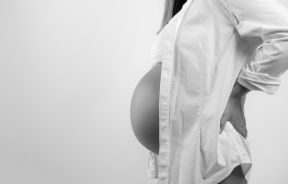Conception difficult in aging women with O blood type
Testing for fertility, scientists have found that conception in middle-aged women is related to their blood type. As women with O blood type grow older, they face lesser chances of getting pregnant.
Scientists for the first time have claimed a relationship between blood group and conception based on the eggs produced. O blood type women tend to produce fewer and low-quality eggs. The FSH or Follicle Stimulating Hormone is a measure of fertility in women. Low egg count or "diminished ovarian reserve" is indicated by high FSH levels common to women with O blood type. In contrast women with blood type A normally show lesser FSH levels and produce more eggs of better quality.
FSH stimulates ovarian follicles leading to production of eggs. As women grow older, the hormone levels increase in the body to sustain production of eggs. However, the raised FSH level of women with O blood type is not a measure of their conception rate. Hence, despite the numbers from comparing FSH levels, researchers do not advocate earlier trying in O blood type women. Also ovarian reserve is low in obese women and drops between 30-40 years of age.
This research is the first report of a link between blood typing and fertility in women. Blood type O and A was chosen because they constitute 44% and 42% of British population. The study included data from 560 women whose average age was 35 years. Albert Einstein College of Medicine Scientist Dr Edward Nejat will present these findings at American Society for Reproductive Medicine (ASRM) conference on October 26, 2010.
This study is appreciated by infertility associations across the world. Some of the remarks of infertility research scientists are as follows. Susan Seenan, Infertility Network UK, also cautioned against advising O blood type women to try sooner at this stage. Susan says - "Anything which might help couples avoid having to have fertility treatment has got to be good news. If couples know that there is a possibility that they might have a fertility problem then perhaps they can address that earlier."
Other scientists find a need for identifying other fertility prediction hormones like FSH and conducting a larger study of the general population as against only those who have enrolled for fertility testing.



























